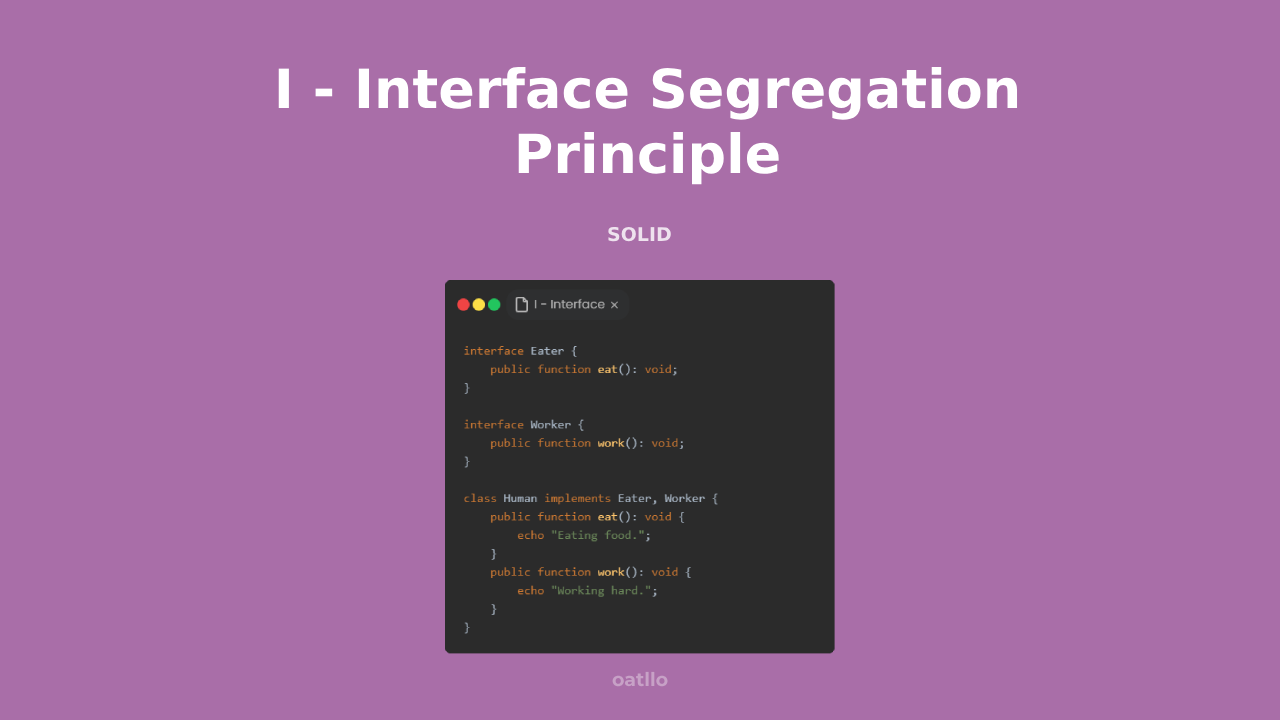What is the Interface Segregation Principle?
The Interface Segregation Principle (ISP) is one of the SOLID principles in software design, aimed at improving code readability and making it easier to maintain and evolve. In short, this principle states that a class should not be forced to implement interfaces that are not relevant to it. This helps avoid unnecessary dependencies and keeps the code clean and clear.
Why is the Interface Segregation Principle important?
In many projects, we encounter complex interfaces containing methods that not all implementing classes actually need. By applying the Interface Segregation Principle, we can split these interfaces into smaller, more specific ones, which leads to better modularity and makes unit testing of each class easier.
How to apply the Interface Segregation Principle in PHP?
In PHP, to apply the ISP, it is best to define specialized interfaces rather than creating one large interface. For example, if we have classes for printers and scanners, we should create separate interfaces such as Printer and Scanner. This way, each class only implements the methods it actually needs.
Examples of violating the Interface Segregation Principle
Examples of ISP violations include creating classes that implement methods they don’t actually use. Such practices can lead to increased complexity and harder-to-maintain code structures, which in the long run may cause problems.
Benefits of applying ISP correctly
Applying the Interface Segregation Principle in PHP projects brings many benefits, such as:
- Better code organization – with smaller and more specific interfaces, code becomes easier to understand.
- Easier modifications – changes in one interface do not affect the rest of the application, which simplifies development.
- Increased reliability – smaller interfaces reduce the risk of errors and implementation-related issues.
Check out the articles below to learn more about the Interface Segregation Principle and its impact on PHP programming!
